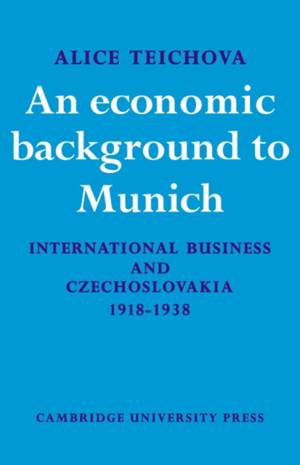
- Afhalen na 1 uur in een winkel met voorraad
- Gratis thuislevering in België vanaf € 30
- Ruim aanbod met 7 miljoen producten
- Afhalen na 1 uur in een winkel met voorraad
- Gratis thuislevering in België vanaf € 30
- Ruim aanbod met 7 miljoen producten
Zoeken
€ 67,95
+ 135 punten
Omschrijving
The economic background to the dismemberment of Czechoslovakia at Munich in 1938 has not received the attention it deserves. This book helps to redress this imbalance by analysing in depth the web of foreign interests - direct foreign investment, foreign long-term loans and the activities of international cartels in Czechoslovakia in the interwar period. After the First World War Central and Southeast Europe became one of the major regions of the world to which capital from France, Great Britain and the United States was exported. Czechoslovakia played a central part in this development: foreign capital sought to invest in Czechoslovak industrial enterprises and banks, to make loans to the state, public institutions and private economic organizations and to influence production, prices and the market through cartel agreements. Dr Teichova discusses in detail the influence of foreign capital and business organizations in mining, the metallurgical industries, engineering, electrical industries, chemical industries and banking in the greater part of the modernized sector of the economy.
Specificaties
Betrokkenen
- Auteur(s):
- Uitgeverij:
Inhoud
- Aantal bladzijden:
- 444
- Taal:
- Engels
- Reeks:
- Reeksnummer:
- nr. 17
Eigenschappen
- Productcode (EAN):
- 9780521073967
- Verschijningsdatum:
- 28/08/2008
- Uitvoering:
- Paperback
- Formaat:
- Trade paperback (VS)
- Afmetingen:
- 140 mm x 216 mm
- Gewicht:
- 557 g

Alleen bij Standaard Boekhandel
+ 135 punten op je klantenkaart van Standaard Boekhandel
Beoordelingen
We publiceren alleen reviews die voldoen aan de voorwaarden voor reviews. Bekijk onze voorwaarden voor reviews.











